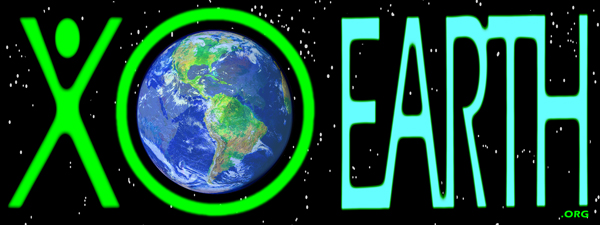compare the ecological effects of consumer and business products, services and choices
Airline flights • Car / Automobile • Beer • Chicken/ Fish/ Eggs • Clothes dryer • Clothes line • Dress • Fruit / Vegetables • Jacket • Juice • Junk mail • Laundry detergent • Magazine • Paper cup • T-shirt • Shoe • Trousers/Pants
Habitat, Life, Extinction Formulas v2
[[:Category:Products]] • [[:Category:Services]] • [[Raw_Materials]] • [[:Category:Choices]]
• Explore ecofx wiki to find out how much natural habitat (in square meters and feet) and plant and animal life (in kilograms and pounds) is affected by a consumer product, service or choice — plus the carbon footprint, extinction trigger and maybe some ecomedia. Make eco smart choices for the biosphere using the matrixes, formulas and other goodies.
• If a product does not have an ecofx matrix yet, make one by using the formulas. Then add your matrix here on the ecofx wiki, on other websites and beyond. Edit and expand other articles and matrixes too. If the wiki asks you to login again when saving, quickly click “save page” again.
• Write or copy one or more sentences about the ecofx of a product and share it with others — via facebook, bulletin boards, wikipedia.org and your own ecomedia. Include a link back to the product’s matrix.
• Envision a tale or story about the positive effects on a life by not purchasing a product, or the negative effects of purchasing a product. Blog your ecofx tale, then add a link in the ecomedia section at the bottom of a relevant ecofx wiki article. Writers, artists, musicians and media makers are invited to add their ecofx tales as well.
Estimated carbon footprint, loss of natural habitat potential for one year, loss of plant and animal life potential for one year, and extinction potential, from producing, packaging, shipping and using a product. ———– + Except for CO2 emissions, estimates are based on Habitat, Life, Extinction Formulas v2 by the XOEarth Team + Estimates do not include the possible long-term ecological effects of climate change and persistent toxins. Formulas use “human appropriated net primary production (HANPP)” to “CO2 emissions” correlation. ———– 1 kg(kilogram) = 2.2 lb(pounds) 1 m^2(square meter) = 10.8 ft^2(square feet) 1 km(kilometers) = .62 mi(miles) 1 liter = .26 gallons |
||||||
| Dress (strappy)
CO2 from ‘patagonia.com/ web/ us/ footprint’ for their Vitaliti dress [[#ref1]] |
Product materials.
61% org cotton, 30% recycled polyester, 9% spandex |
CO2 emissions to make this product.
14 kg |
Loss of natural habitat potential for one year to make this product.
10.8 m^2 |
Loss of native plant and animal life potential to make this product.
33.6 kg |
How many of this product (if made) to trigger 1 potential species extinction.
13.9 million |
|
| Jacket/Shell combo made with Polartec and fleece
CO2 from ‘patagonia.com/ web/ us/ footprint’ for their Talus jacket [[#ref1]] |
Product materials.
Polyester, nylon |
CO2 emissions to make this product.
30 kg |
Loss of natural habitat potential for one year to make this product.
23 m^2 |
Loss of native plant and animal life potential to make this product.
72 kg |
How many of this product (if made) to trigger 1 potential species extinction.
6.5 million |
|
| 4Runner Toyota
16 mpg / CO2 data from Toyota 120,000 miles lifetime [[#ref1]] |
Product materials.
Steel, aluminum, plastic, copper, etc. |
CO2 released in the lifetime of this product.
118 tons |
Loss of natural habitat potential in the lifetime of this product.
91,000 m^2 |
Loss of native plant and animal life potential in the lifetime of this product.
283 tons |
How many of this product (if made) to trigger 1 potential species extinction.
1,652 |
|
| Prius Toyota
46 mpg / CO2 data from Toyota 120,000 miles lifetime [[#ref1]] |
Product materials.
Steel, aluminum, plastic, copper, etc. |
CO2 released in the lifetime of this product.
44 tons |
Loss of natural habitat potential in the lifetime of this product.
33,900 m^2 |
Loss of native plant and animal life potential in the lifetime of this product.
105 tons |
How many of this product (if made) to trigger 1 potential species extinction.
4,400 |
|
== References ==
1. Six Products, Six Carbon Footprints online.wsj.com/article/SB122304950601802565.html
Wall Street Journal
== Ecomedia ==
== Resources ==
== News: An upgrade to a MediaWiki or a WordPressWiki is planned.

Leave a Reply
You must be logged in to post a comment.